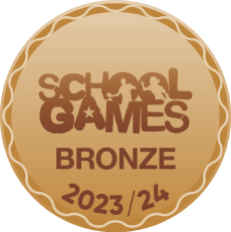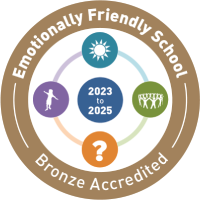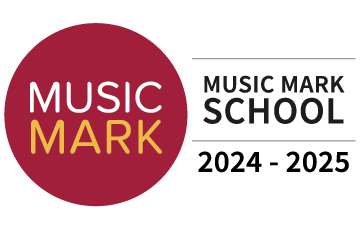Religious Education
Wardley CE Primary School Religious Education Curriculum Design Statement
Subject Intent
What is RE?
Our investigation of Key Questions implement the principal aim of RE, which is to engage pupils in systematic enquiry into significant human questions which religion and worldviews address, so that they can develop the understanding and skills needed to appreciate and appraise varied responses to these questions, as well as develop responses of their own.
As a Church of England School Religious Education (RE) is central to the understanding of education and mission that we have at Wardley. The aim of RE at Wardley is:
- To enable pupils to encounter Christianity as the religion that shaped British culture and heritage and influences the lives of millions of people today.
- To enable pupils to learn about the other major religions, their impact on culture and politics, art and history, and on the lives of their adherents.
- To develop understanding of religious faith as the search for and expression of truth.
- To contribute to the development of pupils’ own spiritual/philosophical convictions, exploring and enriching their own faith and beliefs.
All primary schools need to “raise the status of RE” (Ofsted) and provide an RE curriculum which promotes respect and empathy. At Wardley RE is considered to be a vital part of a child’s education because it allows young people to develop their beliefs and values. It helps children understand the place of religion and belief in the world. The teaching of RE is also important because it contributes educationally to the spiritual, moral, social and cultural development of all pupils. In studying RE at Wardley children will develop:
- Think critically and explore ultimate questions.
- Reflect critically on the truth claims of Christian belief.
- Develop the skills to analyse, interpret and apply the Bible text.
- Recognise that faith is a particular way of responding to God and the world.
- Analyse and explain the varied nature and traditions of the Christian community.
- Make a well informed response to Christianity.
- Respect those of all faiths in their search for God.
- Reflect critically on areas of shared belief and practice between different faiths.
- Enrich and expand their understanding of truth.
- Reflect critically and express their views on the human quest and destiny
Subject Implementation
Implementation is the way that the intended curriculum is taught and assessed. Our curriculum is based on the 2014 National Curriculum. The RE topics and skills that are taught in each year group are set out in the RE teaching cycle document (see below).
As a school we use the Salford Agreed Syllabus of Religious Education to deliver our RE. Christianity is the majority study in this syllabus and is studied in every year group. In addition, from Year 1 through to Year 6, our children are also taught about a variety of the world religions. These include Buddhism, Islam, Hinduism, Judaism and Sikhism. We have a duty to foster an accurate and increasing understanding of world religions and world views. As a result, pupils will gain greater insight into the world in which they are growing up. They will also be able to appreciate the faith of others and develop a deeper understanding of their own beliefs and practices.
To this end over the course of the academic year, each year group in both Key Stage One and Key Stage Two covers a range of the religions. Within this, they study a particular topic, theme or festival associated with that religion. Throughout both Key Stages children are given the opportunity to not only learn about the individual religions but are encouraged to discuss and think about their similarities and differences with other religions at the same time.
Across the whole school, there are five key threshold concepts that the children will keep returning to in their religious education work. The children are assessed by the teacher during each unit against the age related expectations for these key threshold concepts. They are:
- To understand beliefs and teachings
- To understand practices and lifestyles
- To understand how beliefs are conveyed
- To reflect
- To understand values
Subject Impact
The impact of the subject can be seen in the progress that the pupils make. This can be seen as knowing more, remembering more and being able to do more. It is about the pupils developing their ability to systematically enquire about significant human questions which religion and worldviews address. It is about connecting existing and new knowledge, developing competence and making links.
The way we assess this progress includes the following practice (as set out in the school’s teaching & learning policy and assessment policy):
- Short term assessment- this includes the use of day to day assessment for learning classroom practice and feedback.
- Frequent assessment - this looks at the pupil’s development of basic knowledge and skills. It includes short tests and quizzes. The aim is to reactivate thinking, make links and connect ideas.
- Half-termly assessment - this looks at conceptual & procedural knowledge. It uses short research tasks - end of unit responses to the key questions. The focus is on developing procedural knowledge, enabling the pupils to know how to use what they have learnt.
- Long term assessment (on an annual basis) - this looks at substantial conceptual knowledge. It involves the pupils drawing their learning together. It provides a snapshot of whole school progress.
RE in the EYFS
The key link for RE within the EYFS is within ‘The Understanding The World’ strand of the EYFS curriculum. Understanding the world involves guiding children to make sense of their physical world and community. The frequency and range of children’s personal experiences increases their knowledge and sense of the world around them - from visiting parks, libraries and shops to meeting important members of society such as police officers, nurses and firefighters. In addition, listening to a broad selection of stories, non-fiction rhymes and poems will foster their understanding of our culturally, socially, technologically and ecologically diverse world. As well as building important knowledge, this extends their familiarity with words that support understanding across domains. Enriching and widening children’s vocabulary will support later development in the subject and in reading comprehension more widely. The key RE strands that are therefore developed within the EYFS can be seen as:
- recognising that people have different beliefs and celebrate special times in different ways
- understanding that some places are special to members of their community
- beginning to make sense of their own life-story and family’s history
- talking about members of their immediate family and community
- naming and describing people who are familiar to them
- making connections between the features of their family and other families
- noticing differences between people
- continuing to develop positive attitudes about the differences between people
- showing interest in different occupations
- knowing that there are different countries in the world and talking about the differences that they have experienced or seen in photos
- recognising some similarities and differences between life in this country and life in other countries
- comparing and contrasting characters from stories, including figures from the past
How do we make cross-curricular links?
When planning lessons, teachers at Wardley consider other subjects and endeavour to make cross-curricular links.
RE and English
RE topics are carefully planned to allow regular opportunities for extended writing where it is appropriate. These are based on the RE content they have been focusing on within that unit. This enables them to use the vocabulary they have learnt creatively as well as familiarising them further with the range of writing skills they cover throughout the school. For example, long writing tasks are often incorporated into lessons so that children have an opportunity to write down their ideas, opinions and views in a structured task (diary entries, letters or even stories). As well as being an opportunity to consolidate writing skills and reapply them in an alternative and more independent context, this type of activity also allows the children to put themselves in the shoes of the people that they are learning about and approach their learning from a different perspective.
Teachers also encourage drama work to reinforce teaching points and to allow children to express themselves about a particular topic. These drama activities can increase pupil confidence, allow ‘pupil voice’ and provide valuable opportunities for personal and spiritual exploration.
RE and British Values
RE plays an important role in promoting an understanding of fundamental British values. RE can be seen to support pupils to become responsible, respectful and active citizens who are able to play their part. As a subject it looks to develop mutual respect, tolerance and pupil's character.
RE and Inclusion
At Wardley we pride ourselves on supporting all pupils to reach their full potential. As with all our teaching at Wardley, we provide a suitable learning environment and use appropriate strategies at all times, which allows us to meet individual needs in all lessons. We provide all children with the tools and support to be involved and access every RE lesson. This is the ‘low threshold, high ceiling’ model of teaching and learning that is set out in our teaching and learning policy.
To promote an inclusive environment in music we will:
- Read aloud texts and information to support understanding as needed.
- Ensure all instructions are clearly communicated and broken down into smaller steps where necessary.
- Allow longer processing times for all pupils, so all have the opportunity to think about questions.
- Use the Blank level questioning.
- Provide visual resources and prompts to support understanding of tasks and learning as needed.
- Offer an alternative to written evaluation (video, adult scribe) as needed.
- Promote positive relationships, well being and active engagement.
- Ensure all pupils can access the best possible teaching.
- Adopt a positive & proactive approach to behaviour.
- Assessment is regular and purposeful and teachers are empowered and trusted to use the information they collect to make decisions.
What is special about RE at Wardley?
We aim for our RE curriculum to provide children with challenging questions about the meaning of life, including global issues. We do this by promoting civilised debate and in-depth discussions.
Teachers have access to a range of religious artefacts to support their lessons for each religion. We organise regular RE trips to different places of worship within our local area. All of these opportunities are examples of how we provide our children with hands-on authentic experiences of the diversity of religion and how we value experiential learning and aim to enrich RE.
During our RE lessons, teachers offer opportunities for pupils to encounter an authentic voice of faith and belief. This means that we encourage dialogue between pupils and praise those who want to share their own unique and personal religious experiences. This is particularly beneficial when pupils teach their classmates about particular religious traditions or festivals. Here, our pupils become the “experts” and we believe that this can not only raise self-esteem but also give a positive image of each faith and enhance the quality of learning in RE. We can also welcome members of our school community, including parents and relatives, to come and speak to our classes about a particular RE topic.
RE and links to home
Children’s learning is always accentuated if the support at home is provided in addition to work done inside the classroom. At Wardley we encourage children to stay up to date with what is going on in the world by following news about religious events, beliefs and stories. In addition there are also ideas on the termly curriculum leaflets about ways in which parents and carers can support their child’s learning.







